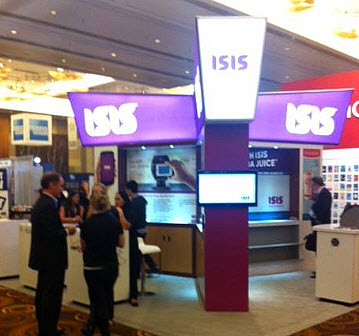The idea that people are becoming addicted to technology has become commonplace…
with many media scare stories focusing on the negative aspects of mobile communication and the internet, but there can also be important health benefits to the availability of these types of technologies, including for the treatment of other forms of addiction.
Reaching Out to Addicts
Substance abuse is a significant problem. The Substance Abuse and Mental Health Services Administration estimates that in 2012, there were about 22.2 million people over the age of 12 who were dependent on or otherwise seriously abusing drugs and alcohol in the US. The number receiving treatment and support to change their behavior was much lower, with just 2.5 million people receiving treatment for substance abuse at a specialized facility. Of the 20.6 million people who SAMHSA classified as in need of treatment for alcoholism or substance abuse, but who didn’t receive any care, 1.1 million people reported that they felt in need of such treatment, almost a third of whom had made some attempt to seek help, unsuccessfully. Although many services are available to help people who have become dependent on drugs or alcohol, it is often difficult for addicts to access them.
Taking the first step towards recovery by seeking help is difficult enough, but for an individual whose life has been disrupted by addiction, it can be made even harder by issues such as illness and homelessness. It can also be difficult for people to sustain their recovery. Aftercare is a significant component of many addiction recovery programs, but it can be very problematic and expensive to keep track of people as they move back into society after rehab, or in between visits to support and counseling groups. New mobile technologies appear to offer solutions to some of the problems associated with the long term care of recovering addicts. One example of such a solution is the Life Change Addiction Recovery app.
An App for Change and Recovery
Life Change Addiction Recovery helps to connect people who are in need of help to overcome a substance addiction with the support that they need. The app helps to connect people who are trying to take their first step towards recovery to reach the people who can help them immediately, rather than forcing them to seek help through slower and more complicated routes that can discourage them and make it more difficult to succeed. The app can be used to find a local support group or to identify a suitable recovery program, but it also offers a way to connect directly to an experienced counselor, with someone available to talk to through the app 24 hours a day. This instant connection, and the knowledge that someone is available to provide support at any moment, can help to make the recovery process simpler and easier. It can also ensure that continuing support is available at all stages of recovery, rather than forcing people to cope by themselves once they leave a particular rehab facility or program. The app is available free for both Android and iOS devices, and can be downloaded from the iTunes and Google Play stores.
Changing Relationships to Change Behavior
Finding ways to change the connections that people make through technology can help to create a more supportive social environment and aid recovery. There are often social components to addiction, particularly when young people who are very susceptible to peer pressure are involved. Breaking negative social connections and strengthening the positive ones can be an important part of recovery, but it is one that can be made more difficult by the ease with which former acquaintances can reconnect through technology. Apps that provide a link to the right kind of support can turn devices that might once have been part of the problem into one of the solutions. The same technology that might once have connected an addict to people who would encourage them to continue abusing drugs or alcohol can now be used to connect them to someone who can help and support them through recovery.
Mobile Healthcare
The use of apps to provide counseling and addiction treatment is just one example of a field that is likely to grow significantly over the next decade. It has been estimated that the market for mobile health technology will grow to $10 billion, with applications such as remote patient monitoring and reminders to take medication helping to improve care and prevent unnecessary complications from developing. The types of support services that are currently being made available to help with addiction recovery may one day develop into a more universal and personalized form of healthcare.
 Even among consumers who do have the right type of smartphones – which are exclusively Android based and require specific types of technology – using this mobile payments system isn’t merely a matter of obtaining the wallet app. Though an app is required from the Play Store in order to use the service, there is also a physical update that must be made to the device before purchases can be made.
Even among consumers who do have the right type of smartphones – which are exclusively Android based and require specific types of technology – using this mobile payments system isn’t merely a matter of obtaining the wallet app. Though an app is required from the Play Store in order to use the service, there is also a physical update that must be made to the device before purchases can be made.

